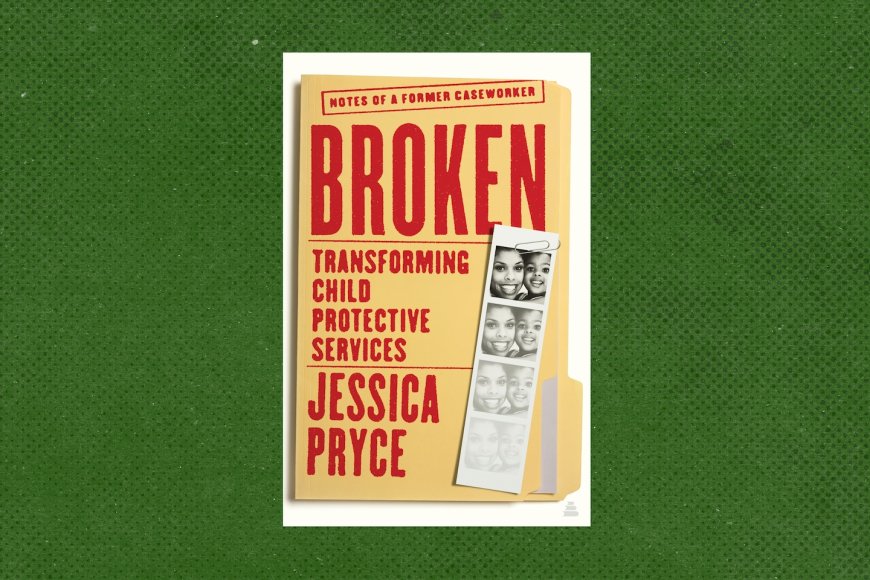Reforming the child welfare system should mean starting with kids
Review: ‘Broken’ by Jessica Pryce The Washington Post

Transforming Child Protective Services — Notes of a Former Caseworker
By Jessica Pryce
Amistad. 283 pp. $28.99

It is natural to assume that the author of a book on “transforming child protective services” would be interested in children. As such, the most surprising thing about “Broken,” Jessica Pryce’s memoir of her career in child welfare, is how disengaged she seems from kids and how best to promote their well-being.
-
There can be real tension between the needs of children and the rights of their parents, between protecting children and pathologizing different parenting styles or criminalizing poverty. Pryce is not the first expert to argue that the child welfare system places disproportionate scrutiny on Black families — and in particular, on Black mothers.
-
One version of an engaging book on this subject might offer a comprehensive proposal for policy reform.
-
Another might make the case for a family welfare system instead of one focused exclusively on children.
-
Unfortunately, “Broken” is neither of these things. Structured as an awkward crossover between a memoir and reported investigation, the result is a bizarre chronicle of self-congratulation rather than an effective contribution to child welfare debates.
By her own account, Pryce drifted into child welfare work, accepting a job as an investigator in the Department of Children and Families in Tallahassee after interning there during her social work master’s degree program. She writes that she felt no particular drive to interview families or children, zoned out during training and focused on churning through case files, even knowing that as a result she “came off to parents as hurried and detached” and her investigations lacked depth. Until a dear friend was reported to CPS, Pryce writes, she never considered whether the requirements she imposed on parents were fair or helpful. It was not until she went back to graduate school a second time that Pryce says she became acquainted with the extensive data documenting the disproportionate involvement of Black families in the child welfare system, numbers she could have employed to bolster her anecdotes about how Black women experience being investigated.
-
Pryce borrows a title chapter from “Torn Apart,” Dorothy Roberts’s deeply researched 2022 cri de coeur against racism in the child welfare system, but doesn’t cite that volume or invoke Roberts’s arguments about how foster care affects children.
-
It says a great deal about what kind of book “Broken” is that Ibram X. Kendi’s “How to Be an Anti-Racist” appears in Pryce’s footnotes three times, while Roberts, whose decades of work on child welfare ought to have been vital to this book, merits only a single mention.
Instead of drawing from academic literature, Pryce prides herself on using case studies to build her argument that the child welfare system unfairly penalizes conscientious parents. But the examples she’s chosen tend to work against those contentions.
Take the story of Madisen, whose mother, Didi, struggled with depression and homelessness. Didi left Madisen in the care of Erica, Madisen’s godmother and Pryce’s good friend. Though the arrangement was intended to be temporary, Didi eventually abandoned Madisen. Out of quite understandable grief and confusion, Madisen began acting out, and Erica began spanking her, ultimately escalating to holding Madisen down and hitting her with a belt.
To many readers, Madisen’s visible bruises might seem like a logical thing to investigate. Yet Pryce invokes Erica’s experience as evidence of the extreme unfairness of CPS to Erica. How awful and unfair that Pryce’s dear friend, a person who Pryce is sure is incapable of cruelty, could be investigated! What business is it of the state whether parents employ their “chosen form of discipline”?
In defense of Erica, Pryce suggests that 70 percent of American parents spank their children. But she never provides a citation for that figure, which is odd given that some evidence suggests that spanking is on the decline, and probably far less widespread than that figure would suggest. Nor does she spend a moment grappling with whether spanking is an effective form of discipline — washingtonpost.com

Join us, as fellow seekers of change, on a transformative journey at https://sdgtalks.ai/welcome, where you can become a member and actively contribute to shaping a brighter future.







